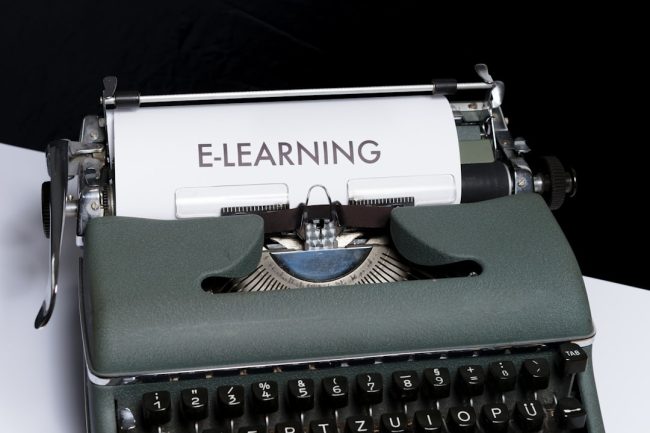Embracing the Future: Artificial Intelligence’s Role in Employee Upskilling The significance of employee upskilling cannot be emphasized in the fast-paced, constantly-changing business environment of today. Organizations must make sure that their workforce has the most up-to-date skills & knowledge in order to stay competitive. The process of teaching employees new skills or improving their current ones so they can adjust to evolving job requirements and technological advancements is known as upskilling.
In addition to increasing employee engagement and morale, this proactive strategy improves overall organizational performance. The COVID-19 pandemic and other recent worldwide events have accelerated the digital transformation of many industries, making the need for upskilling even more pressing. Businesses that put employee development first are better equipped to handle change and take advantage of new opportunities. It is evident that utilizing AI technologies can greatly improve the efficacy and efficiency of training initiatives as we examine the relationship between AI and employee upskilling in greater detail. Artificial intelligence is now a necessary component of the modern workplace and is no longer a futuristic idea. AI is changing how businesses function, from automating repetitive tasks to offering data-driven insights.
AI’s capacity to swiftly and accurately analyze enormous volumes of data is one of its most important effects, enabling companies to make well-informed decisions based on current information. This feature increases productivity and simplifies operations, freeing up staff to concentrate on higher-value work. AI is also changing how businesses handle personnel. AI-driven tools that can evaluate candidates’ abilities and forecast their likelihood of success within a company are supplementing traditional methods of hiring & performance evaluation. This change helps companies find high-potential workers who might profit from focused upskilling programs in addition to increasing hiring accuracy.
AI’s impact on workplace dynamics will only increase as it develops, so it is crucial for businesses to adjust and welcome these developments. By offering individualized & flexible learning experiences, artificial intelligence (AI) has the potential to completely transform employee learning and development. Conventional training programs frequently take a one-size-fits-all approach, which might not adequately address the various needs of staff members. AI-driven learning platforms, on the other hand, are able to evaluate each employee’s learning preferences, styles, and progress & customize content to meet their particular needs.
This individualized approach speeds up skill acquisition while also improving engagement. Also, by providing on-demand resources and assistance, AI can support ongoing learning. Workers can learn at their own pace by having access to training materials, tutorials, and simulations whenever it’s convenient for them. In today’s remote work environment, where employees may have different schedules and commitments, this flexibility is especially beneficial.
Organizations can foster a culture of continuous improvement by incorporating AI into learning and development strategies, enabling staff members to take responsibility for their own professional development. Finding skill gaps in an organization’s workforce is one of its biggest challenges. Conventional evaluation techniques frequently depend on self-evaluations or recurring performance reviews, which might not give a complete picture of an employee’s abilities.
AI can solve this problem by identifying particular areas where skills might be deficient through the analysis of performance data, project results, and employee feedback. Organizations can determine which employees might need more training and obtain insights into the skills that are most important for success in their sector by utilizing AI-driven analytics. Companies can more efficiently allocate resources thanks to this data-driven strategy, which guarantees that upskilling programs are focused and effective. Also, organizations can track progress over time and modify their training strategies as necessary by routinely using AI tools to monitor skill development.
To maximize the efficacy of employee training programs, personalized learning paths are crucial. Organizations can use AI to develop personalized learning programs that support both organizational and individual career goals. AI can suggest particular courses or training modules that will help close skill gaps and improve overall competency by evaluating an employee’s current skill set, career goals, & performance metrics. Also, as employees advance through their training, AI can support adaptive learning experiences.
For example, the AI system can modify the learning path to introduce more complex topics or challenges if an employee shows proficiency in a particular area. In addition to maintaining employee engagement, this dynamic approach guarantees that workers are continuously acquiring pertinent skills that correspond with the organization’s changing requirements. Despite the obvious advantages of incorporating AI into employee upskilling, organizations may face a number of difficulties in doing so. One major obstacle is resistance to change; workers may be reluctant to embrace new technology or worry that AI will take their jobs.
Organizations must promote an environment of openness and communication in order to allay these worries, stressing that AI is a tool meant to supplement human abilities rather than to replace them. Organizations also need to invest in the resources and infrastructure needed to support AI-driven projects. This entails making sure data privacy and security measures are in place, training employees on how to use these tools efficiently, & choosing the appropriate technology platforms. Organizations can successfully incorporate AI into their upskilling strategies and realize its full potential by proactively addressing these issues and offering continuous support. The future of employee upskilling will surely be influenced by developments in artificial intelligence.
Organizations must continue to be flexible and sensitive to new trends in their industries due to the speed at which technology is changing. AI will be essential in assisting businesses in anticipating skill needs and modifying their training initiatives accordingly. Also, as AI technologies advance, we should anticipate even more advanced tools that improve educational opportunities.
For example, AI-powered virtual reality (VR) & augmented reality (AR) applications may offer realistic training environments. In addition to making learning more interesting, these cutting-edge methods will allow staff members to hone their skills in a secure environment. In conclusion, companies looking to improve the capabilities of their workforce have a revolutionary opportunity when it comes to integrating artificial intelligence into employee upskilling.
Businesses can effectively close skill gaps and promote a continuous improvement culture by utilizing AI-driven insights and customized learning experiences. Organizations hoping to prosper in the future will need to embrace AI’s potential as we navigate an increasingly complex business landscape. We at Designing Digitally are aware of the difficulties businesses encounter when putting upskilling strategies into practice. Our team of professionals is committed to assisting you in utilizing artificial intelligence to develop customized learning solutions that address your particular requirements. We are here to assist you at every stage, whether your goal is to create individualized learning plans or find skill gaps in your workforce.
Get in touch with us right now to find out how we can work with you to develop a workforce that is more knowledgeable and flexible!













